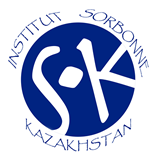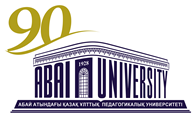|
|
|
|

The main goal of education in International Law (5В030200) is:
План развития специальности "Международное право" 5В03020 2017-2020
Модель выпускника образовательной программы "Международное право"
Фото кафедры "Международное право"
Educational program "6В042 Law" - 6В04202 - "International Law"
Qualification characteristics of the graduate
The purpose of the educational program
Training training of a lawyer in the field of international public and private law with knowledge of foreign languages, possessing modern practical, communicative, digital, entrepreneurial competencies, a high level of legal culture and legal awareness, capable of professionally applying legal acts, solving complex issues in the field of international law
Awarded degree
Bachelor of Laws on EP "International Law"
Graduate Model
• Professional and social responsibility
• Clarity of goals and value orientations
• Hard work, self-discipline, speech activity
• Emotional intelligence and stability
• Practice-oriented and entrepreneurial skills
• Respect for historical and cultural heritage, tolerance
• Deep understanding of digital environments, new content creation skills
• Multilingual
• Ability for constructive interaction, adaptability to global challenges
• Ability to lead, make independent decisions
• Creativity, ability to be socially active
• Ability for continuous professional growth and self-development
Professional area
Protection of the rights and interests of the state, individuals and legal entities in the Republic of Kazakhstan and abroad;
contractual legal settlement of legal relations;
legal support of foreign policy and foreign economic activity of the Republic of Kazakhstan.
Objects of professional activity
1. Bodies of external relations of the Republic of Kazakhstan,
2. law enforcement agencies,
3. commercial and non-commercial organizations.
Professional activities
Bachelors of EP "International" law can carry out the following types of professional activities:
• law enforcement;
• human rights activities, protection of the rights of individuals and legal entities in the Republic of Kazakhstan and abroad;
• consulting activities;
• representation of the Republic of Kazakhstan in the foreign policy arena, including work in the field of diplomatic and consular relations, in international intergovernmental and non-governmental organizations;
• law-making work, including the development of international treaties and contracts;
• legal support for business with a foreign element,
• expert and advisory work, including preparation of scientific and legal opinions on draft laws, contracts and transactions.
The uniqueness of educational programs in this area
The competitive advantages of the OP International Law program are:
- international cooperation in the direction of training with leading European universities of the University of Lorraine (France), the University of Strasbourg (France), the University of Toulouse (France);
- availability of double-diploma EP "International Law" and "Fiscal Law" with the University of Lorraine,
- presence of joint EP "European and International Law" with the University of Strasbourg,
- double diploma program "Digital Law" with IITU
- training of highly qualified international lawyers with knowledge of two foreign languages;
- continuous process of learning foreign languages for 7 semesters with a gradual increase in the level of language training with an emphasis on international law;
- an interdisciplinary approach to the formation of the program;
- to expand and deepen professional knowledge, new elective disciplines were developed: "Digital Law", "International Business Law", "International Contract Law" "International Fiscal Law", "Legal Status of Foreigners in the Republic of Kazakhstan and International Law" "International Trade Law and international commercial arbitration "," The judicial system of the Republic of Kazakhstan and foreign countries and judicial rhetoric "," Legal regulation of subsoil use and environmental law "," Land law of the Republic of Kazakhstan and foreign countries ", etc.
The educational program is aimed at preparing for the implementation of rule-making, law enforcement, law enforcement, expert consulting, human rights activities.
The educational program is developed on the basis of a competency model for training specialists, which meets the needs of the labor market and the requirements of employers. This model is a description of the key competencies of graduates, their level of preparedness and readiness to perform specific professional functions.
When developing the EP "International Law", we focused on the requirements of employers, as well as on the basis of the EP of the best universities according to the QS rating, which are distinguished by an innovative approach to the study of international legal disciplines (The London School of Economics and Political Science, Harvard University, University of Oxford, University of Cambridge).
To provide the educational program with the relevant content of education, the revision and addition of the lists of profile, elective and practice-oriented disciplines and modules and practices is systematically carried out.
Competencies
- carries out professional activities on the basis of developed legal awareness, legal thinking and legal culture, observes the principles of professional ethics;
- able to provide qualified legal opinions and advice in specific types of legal activities;
- is able to apply and interpret the normative legal acts of the Republic of Kazakhstan and foreign countries and the norms of international treaties; possesses the skills of legal analysis of specific situations complicated by a foreign element
- ready to respond professionally within the competence to violation of the law, capable of detecting, suppressing, disclosing and investigating crimes and other offenses;
- possesses the skills of preparing legal documents, drafting the text of an international treaty, documents for international judicial and arbitration institutions;
- capable of learning and mobility to develop the competencies necessary to adapt to the changing labor market;
- is able to understand the essence and significance of information in the development of modern digital technologies and the information society, to be aware of the dangers and threats that arise in this process, to comply with the basic requirements of information security;
- owns the ways of organizing professional activities in a multicultural environment, taking into account ethnocultural and confessional differences and features of the socio-cultural structure of society;
- possesses the skills of persuasion, critical thinking, communication skills, making independent decisions and defending their own positions, is able to work in a team and individually;
- is able to logically correctly, reasonably and clearly build oral and written speech in Kazakh (Russian), foreign languages, owns the necessary skills of professional communication in Kazakh (Russian), foreign languages.


